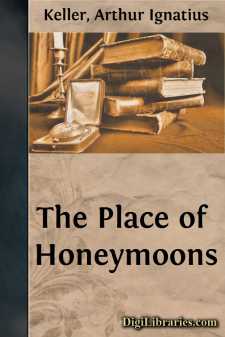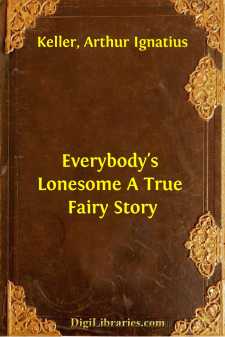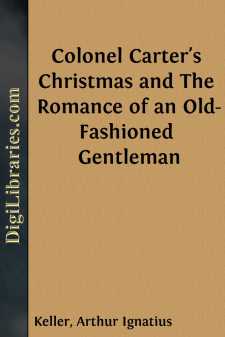Categories
- Antiques & Collectibles 13
- Architecture 36
- Art 48
- Bibles 22
- Biography & Autobiography 813
- Body, Mind & Spirit 142
- Business & Economics 28
- Children's Books 16
- Children's Fiction 13
- Computers 4
- Cooking 94
- Crafts & Hobbies 4
- Drama 346
- Education 46
- Family & Relationships 57
- Fiction 11829
- Games 19
- Gardening 17
- Health & Fitness 34
- History 1377
- House & Home 1
- Humor 147
- Juvenile Fiction 1873
- Juvenile Nonfiction 202
- Language Arts & Disciplines 88
- Law 16
- Literary Collections 686
- Literary Criticism 179
- Mathematics 13
- Medical 41
- Music 40
- Nature 179
- Non-Classifiable 1768
- Performing Arts 7
- Periodicals 1453
- Philosophy 64
- Photography 2
- Poetry 896
- Political Science 203
- Psychology 42
- Reference 154
- Religion 513
- Science 126
- Self-Help 84
- Social Science 81
- Sports & Recreation 34
- Study Aids 3
- Technology & Engineering 59
- Transportation 23
- Travel 463
- True Crime 29
The Bandbox
Description:
Excerpt
At half-past two of a sunny, sultry afternoon late in the month of August, Mr. Benjamin Staff sat at table in the dining-room of the Authors’ Club, moodily munching a morsel of cheese and a segment of cast-iron biscuit and wondering what he must do to be saved from the death-in-life of sheer ennui.
A long, lank gentleman, surprisingly thin, of a slightly saturnine cast: he was not only unhappy, he looked it. He was alone and he was lonely; he was an American and a man of sentiment (though he didn’t look that) and he wanted to go home; to sum up, he found himself in love and in London at one and the same time, and felt precisely as ill at ease in the one as in the other of these, to him, exotic circumstances.
Inconceivable as it may seem that any rational man should yearn for New York in August, that and nothing less was what Staff wanted with all his heart. He wanted to go home and swelter and be swindled by taxicab drivers and snubbed by imported head-waiters; he wanted to patronise the subway at peril of asphyxiation and to walk down Fifth Avenue at that witching hour when electric globes begin to dot the dusk of evening—pale moons of a world of steel and stone; he wanted to ride in elevators instead of lifts, in trolley-cars instead of trams; he wanted to go to a ball-game at the Polo Grounds, to dine dressed as he pleased, to insult his intelligence with a roof-garden show if he felt so disposed, and to see for himself just how much of Town had been torn down in the two months of his exile and what they were going to put up in its place. He wanted, in short, his own people; more specifically he wanted just one of them, meaning to marry her if she’d have him.
Now to be homesick and lovesick all at once is a tremendously disturbing state of affairs. So influenced, the strongest men are prone to folly. Staff, for instance, had excellent reason to doubt the advisability of leaving London just then, with an unfinished play on his hands; but he was really no more than a mere, normal human being, and he did want very badly to go home. If it was a sharp struggle, it was a short one that prefaced his decision.
Of a sudden he rose, called for his bill and paid it, called for his hat and stick, got them, and resolutely—yet with a furtive air, as one who would throw a dogging conscience off the scent—fled the premises of his club, shaping a course through Whitehall and Charing Cross to Cockspur Street, where, with the unerring instinct of a homing pigeon, he dodged hastily into the booking-office of a steamship company.
Now Mystery is where one finds it, and Romantic Adventure is as a rule to be come upon infesting the same identical premises. Mr. Staff was not seeking mysteries and the last rôle in the world in which he could fancy himself was that of Romantic Adventurer. But in retrospect he can see quite clearly that it was there, in the humdrum and prosaic setting of a steamship booking-office, that he first stumbled (all unwittingly) into the toils of his Great Adventure.
When he entered, there was but one other person on the outer or public side of the booking-counter; and he, sticking close in a far corner and inaudibly conferring with a clerk, seemed so slight and unpretending a body that Staff overlooked his existence altogether until circumstances obliged him to recognise it....





